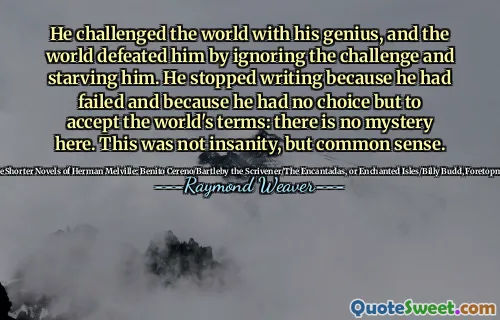Strength and success - they are above morality, above criticism. It seems, then, that it is not what you do, but how you do it and what you call it. Is there a check in men, deep in them, that stops or punishes? There doesn't seem to be. The only punishment is for failure. In effect no crime is committed unless a criminal is caught.
In "The Winter of Our Discontent," John Steinbeck explores the themes of strength and success, suggesting that these concepts transcend moral judgment and criticism. The essence of one's actions is not as important as the manner in which they are executed and the labels assigned to them. This perspective challenges traditional notions of right and wrong, leading to a reflection on what drives human behavior.
Steinbeck raises the question of whether an internal moral compass exists that guides individuals in their actions. He implies that, typically, there’s little to punish except failure; thus, crimes go unrecognized unless one is apprehended. This notion highlights a society where the consequences of wrongdoing depend not on morality, but rather on the outcomes of actions and the ability to evade consequences.

